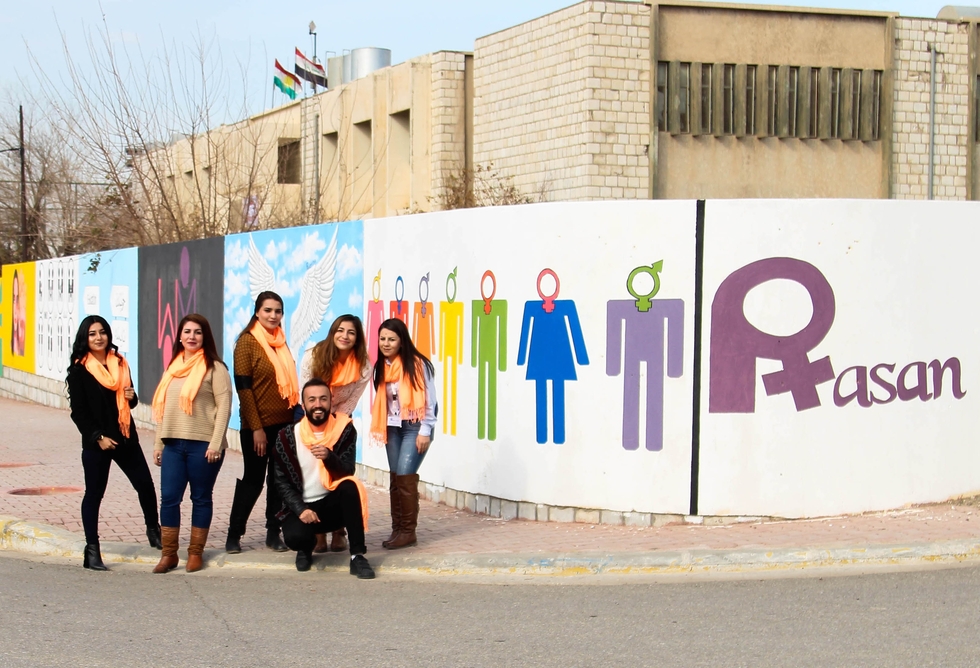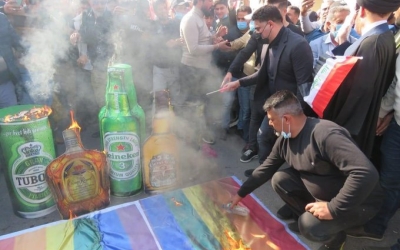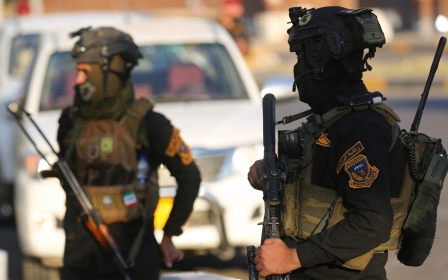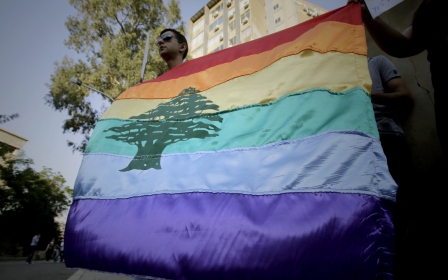Iraq: Activists condemn proposed law banning LGBTQ+ advocacy in Kurdish region

Campaigners in Iraq's autonomous Kurdish region have reacted with alarm to a new bill passing through the devolved parliament that could see LGBTQ+ advocacy banned.
The bill, proposed by an MP from the Kurdistan Islamic Union, has the signatures of 76 MPs in the 111-seat parliament and would see activists supporting LGBTQ+ rights in Iraq Kurdistan potentially facing a year in jail or a maximum fine of up to five million Iraqi dinars ($3,439).
'We will no longer be able to speak out about the discrimination and violence we face without the fear of being prosecuted'
- Zhiar Ali, Kurdish LGBTQ+ activist
MP Esmail Ali Taha told Kurdish news agency Rudaw that he had submitted the proposal to the presidency of the Kurdistan parliament on 4 September, in response to what he saw as homosexuality being "promoted by organisations, the media and many other places".
The bill also states that if the proposed legislation were to be breached by a "company, media institution or civil society organisation, in addition to the punishment mentioned in article 1 of the law, their work permit will be suspended for not less than one week and not more than one month".
The proposals have been condemned by campaigners, who say they would make life even harder for the LGBTQ community in a region which has recently seen a spate of high-profile killings of LGBTQ people.
New MEE newsletter: Jerusalem Dispatch
Sign up to get the latest insights and analysis on Israel-Palestine, alongside Turkey Unpacked and other MEE newsletters
"The bill is an attempt to completely stop LGBTQ+ advocacy in [Iraqi Kurdistan]. This would have devastating effects on the LGBTQ+ community, as we will no longer be able to speak out about the discrimination and violence we face without the fear of being prosecuted," said Zhiar Ali, a Kurdish LGBT activist, speaking to Middle East Eye.
"This bill is a direct violation of human rights and must be stopped."
Liberal veneer?
While homosexuality has been officially legal in Iraq as a whole for almost two decades, politicians and religious leaders in the country have frequently railed against LGBTQ+ people, and laws punishing "immodest acts" have been used to arrest and imprison them.
Members and suspected members of the community face death threats, attacks and murder by armed groups.
However, Iraqi Kurdistan, which is administered by the Kurdistan Regional Government (KRG), has long portrayed an image of comparative personal freedom and liberalism compared to the rest of Iraq, which has made it attractive to foreign investors and also allowed some space for LGBTQ activism.
Qubad Talabani, the KRG's deputy prime minister, has previously tweeted that he believed "all citizens, regardless of race, religion, gender (and or gender preference), ethnic identity and sexual preference deserve equal rights, all over the world, and especially in Kurdistan".
But the murder in February of a trans woman in the Kurdish city of Duhok sparked off a renewed debate about how safe the region actually was for those who were sexually or gender non-conforming.
In April 2021, Sulaymaniyah, sometimes seen as the most liberal city in Iraq, witnessed a police operation that saw the arrest of 15 LGBTQ+ men, allegedly for prostitution.
Although the Directorate of Security in Sulaymaniyah said the arrests were not focused on any one group, operation supervisor Pshtiwan Bahadin told local media that the arrests were aimed at "homosexuals" and said they had taken place with the "cooperation of all the security forces".
Last year also saw the rights group Rasan, which advocates for LGBTQ+ rights, hit with an ongoing lawsuit by an MP, which has seen it limit its activities.
"All international organisations, embassies, consulates and individual activists must stand in solidarity with the LGBTQ+ community," said Ali.
"If they get away with targeting this minority, they will go for the next group just as easily."
Middle East Eye delivers independent and unrivalled coverage and analysis of the Middle East, North Africa and beyond. To learn more about republishing this content and the associated fees, please fill out this form. More about MEE can be found here.





